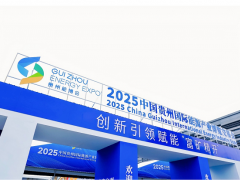據阿拉伯貿易網 2021年12月18日麥納麥報道,盡管采取了放棄化石燃料的行動,但石油行業的未來仍將一片光明。 然而,石油行業將面臨巨大的挑戰,比如充足的供應和不斷萎縮的投資市場,這是由于股東們要求投資更清潔的能源。
這是巴林石油大臣謝赫·穆罕默德·本·哈利法·阿勒·哈利法在12月14日至15日在巴林首都麥納麥舉行的2021年中東石油技術大會上發表的觀點。
哈利法在演講中預測石油行業前景將看漲,摩根大通等保守銀行預測,到2023年前油價將達到每桶150美元。哈利法表示,這意味著市場將存在供應問題。
哈利法表示,全球冠狀病毒疫情讓每個人都意識到,煉油行業的反周期性并非絕對存在。“我們第一次面臨非常低的油價和極低的煉油利潤率。”
他說,過去兩年對石油行業來說非常艱難。沒有人想到疫情會對需求造成如此嚴重的打擊。 WTI原油價格歷史上首次出現負值,全球市場每年損失3000萬桶原油。
哈利法表示,在過去的7年中,與2015年油價暴跌后的投資水平相比,油氣行業損失了1萬億美元的投資。這種投資不足導致供應短缺問題。不過,人們希望,經濟的周期性質將導致需求上升、價格上漲,從而提高煉油利潤率。
哈利法表示,需求不會消失,事實上會持續很長一段時間。
哈利法對與會者強調說:“我要告訴你們,世界對我們石油行業的需求超出了投資的范圍。 預計原油價格將會非常高。”
“但有明確信號表明,石油行業對供應問題感到擔憂。 在全球需求不斷增長的情況下,有預測稱供應會緊張,”哈利法如是說。
哈利法解釋道:“通常情況下,如果你們看原油的遠期曲線,人們會認為未來原油價格會更低。 這意味著預測是悲觀的。 相反,這告訴你們,由于供應不足,他們今天愿意就支付溢價。”
然而,挑戰在于投資不夠。
他呼吁石油行業開始用不同的方式思考。“還有很多事情要做,而我們做得還不夠。”
投資挑戰
煉油廠是非常復雜的技術和工程項目——考慮到目前正在進行的深度轉變——因此需要數十億美元的資金和很長的時間來完成。
為了給煉油廠提供資金,一個由銀行、出口信貸機構、金融機構和商業部門組成的綜合財團將發揮作用。
由于監管規定,銀行無法出售融資,因此需要出口信貸機構。 但這也越來越難獲得。例如,英國出口信貸機構英國出口融資署(UK export Finance)已決定不為石油和天然氣項目提供融資。
哈利法表示:“如果這種趨勢繼續下去,可以想象,為這些大型油氣項目獲得融資將非常困難。”
他補充說,“現在監管環境不斷變化,我們不知道未來會發生什么。”
這位巴林石油大臣指出,另一個投資挑戰是全球環境、社會和治理(ESG)驅動,這使得為油氣項目融資變得更加困難。
深度轉變在能源轉型中的作用
哈利法對能源轉型的速度表示懷疑,他說,這將比預期的時間更長,與人們認為未來10年或20年就會出現的情況截然相反。
然而,他表示,“我們需要與碳排放的敘事接軌。”他列舉了美國在減少碳排放方面取得的成功,他說,這不是通過國家政策,而是通過允許技術形成。
“深度轉變業務正是這樣做的,”哈利法如是說。
“當你推進轉變進程,你是在減少碳和增加氫, 正如你注入來自天然氣的氫時,你增加了氫的含量而減少了碳的含量。”
哈利法還對石油和天然氣行業管理不善提出了警告,并提到了歐洲天然氣危機的例子。
“一旦你管理不善,你就會遇到現實打擊。 當人們突然沒有暖氣、電或交通工具時,他們是不會原諒的,”哈利法如是說。
李峻 編譯自 阿拉伯貿易網
原文如下:
Future of oil is bright but fraught with challenges: Minister
The future of the oil sector is bright despite moves to abandon fossil fuel. It, however, faces big challenges, such as adequate supply and a shrinking investment market, which is led by a shareholders demand to invest in cleaner energy.
These were the views expressed by Shaikh Mohammed bin Khalifa al Khalifa, Bahrain’s Minister of Oil, at the recently–concluded Middle East Bottom of the Barrel and Catalyst Technology Conference, BBTC Mena 2021, held from December 14-15 in Bahrain.
He forecast a bullish outlook for the oil sector, rationalising it with oil price projections of $150 by 2023 by conservative banks like JP Morgan and which he said meant there was a supply problem.
Shaikh Mohammed said the global coronavirus pandemic had made everyone realise that the counter cyclicality of refining was not an absolute given. “For the first time we had very low oil prices and extremely low refining margins.”
The past two years have been very rough for the oil sector. No one imagined the pandemic could have hit the demand so hard. WTI crude went negative for the first time in history, and global markets losing 30 million barrels a year.
In the past seven years, the oil and gas sector lost a trillion dollars in investments when compared to the levels of investment after the 2015 oil price crash.
Such underinvestment leads to supply problems. However, it is hoped the cyclical nature of the economy will lead to rising demand, better prices and thus better refining margins.
Demand, Shaikh Mohammed said, was not going away and will in fact continue for a long time.
He categorially said: “I am telling you that the demand coming for our industries is beyond the investments. Expect very high prices.”
But there were clear signals the industry was worried about the supply issue. There was forecast of tight supply amid a growing global demand.
Shaikh Mohammed explained: “Typically if you look at the forward curve of crude, people think that it's lower in the future. That means that the forecasts are pessimistic. On the contrary, that tells you that they are willing to pay a premium today because of the lack of supply.”
However, the challenge was not having invested enough.
He called for the industry to start thinking differently. “There's a lot to do, and we are not doing enough.”
INVESTMENT CHALLENGES
Refineries are very complicated technological and engineering projects — given the deep conversion being installed today — and thus require billions of dollars in finance and a long time to complete.
To fund them, a complex consortium of finance houses, including banks, export credit agencies, financial institutions, and commercial tranches come into play.
And with banks unable to sell finance because of regulations, there is the need for export credit agencies. But that too is getting harder to obtain.
For example, the British export credit agency, UK Export Finance, has decided not to finance oil and gas projects.
“If this trend continues, you can imagine that getting finance for these mega projects is going to be very difficult,” Shaikh Mohammed said.
“And now with an ever-changing landscape of regulations, we don't know what's going to happen in the future,” he added.
Another investment challenge the minister noted was the global ESG (environmental, social, and governance) drive, which was making financing hydrocarbon projects all the more difficult.
ROLE OF DEEP ConVERSION IN ENERGY TRANSITION
Shaikh Mohammed was skeptical about the pace of energy transition, which he said was going to take longer than anticipated, much contrary to people thinking it would be here in the next decade or two.
However, he said we need to get onboard with the narrative of carbon emissions.
Making a case for deep conversion in reducing carbon emissions, he cited the US’s success in reducing its carbon emissions, which he said wasn’t through state policies, but by allowing technology to take shape.
“The business of deep conversion does exactly that,” he said.
“When you add conversion, you are reducing carbon and increasing hydrogen. As you inject hydrogen, which comes from gas, you're increasing the hydrogen content and reducing the carbon content,” Shaikh Mohammed said.
He also warned against mismanaging the oil and gas sector and alluded to the European gas crisis example.
“once you mismanage the sector, you meet reality. And people are not going to be forgiving when suddenly they don’t have heat, electricity or transport
免責聲明:本網轉載自其它媒體的文章,目的在于弘揚石化精神,傳遞更多石化信息,并不代表本網贊同其觀點和對其真實性負責,在此我們謹向原作者和原媒體致以敬意。如果您認為本站文章侵犯了您的版權,請與我們聯系,我們將第一時間刪除。







